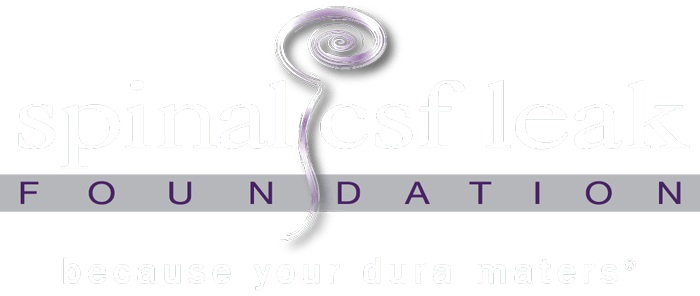
September 25 is International Ataxia Awareness Day. Ataxia, a degenerative neurological disorder that affects movement and coordination, can be a rare symptom of intracranial hypotension due to spinal CSF leak. Ataxia literally means “without coordination” and can affect people of any age. People with ataxia often have difficulties with speaking, walking, and even swallowing. They may also experience tremors and difficulty with balance. Similar symptoms are also—rarely, but occasionally—found in people experiencing spinal CSF leak.
Ataxia and Spinal CSF Leak
Sometimes, patients with spinal CSF leak may present with symptoms of ataxia, and may even be diagnosed with a primary neurological disorder, when in reality their symptoms are due to underlying intracranial hypotension.
Although there has been much progress in raising awareness about intracranial hypotension and spinal CSF leak among physicians, sadly misdiagnosis is often still very much the rule rather than the exception. Read more about misdiagnosis here.
Since serious and atypical presentations such as dementia, tremor, Parkinsonism, ataxia, or coma occur rarely, intracranial hypotension as a potential underlying cause may not be entertained. But it’s important for physicians to consider when making a diagnosis.
Further reading
For more information on ataxia, please visit ataxia.org. For more information on the diagnostic challenges of spinal CSF leak, and other neurological symptoms and complications, please see the following articles:
Diagnostic challenges in spontaneous intracranial hypotension
Brain Awareness Week: Day Five
Case Report: Tremor and Ataxia from Spontaneous Intracranial Hypotension
